- Home
- Vince Flynn
Mitch Rapp 05 - Memorial Day Page 38
Mitch Rapp 05 - Memorial Day Read online
Page 38
“No, sir.”
“Have you ever practiced it?”
“No, sir.”
This could be a problem. Before Rapp could ask any more questions his phone rang. It was Kennedy.
He flipped it open and said, “Yeah.”
“Where are you?”
“I’m airborne and headed toward the river.”
“The president wants to implement Operation Ark.”
This did not come as a great surprise, but it was irritating nonetheless. Attorney General Stokes had already snuck off to Mount Weather. “I thought we had until noon.” He looked at his watch. It was 11:32.
“All things considered, Mitch, I think it’s the right move. It would be impossible for the media to get wind of this and go public with it before one o’clock.”
“I suppose you’re right.”
“The bigger problem is that he’s considering alerting all the embassies in Washington so they can evacuate their staffs.”
“Absolutely not,” Rapp yelled.
“I know…I know. It’s a bad idea. It started out with requests from the British prime minister and the Russian president and grew from there.”
“If you evacuate the foreign embassies the press will find out for sure, and then all bets are off. Tell the president to honor his word and give me until noon.”
“I think I can do that, but there’s something else you need to be aware of. Secretary McClellan and Attorney General Stokes are pushing to have the Coast Guard close the river down and block all traffic coming into the city.”
“Irene, you have to convince the president to wait. If we tip our hand, al-Yamani will just blow the damn thing. Tell him I’ll be over the river in a few minutes, and I’ll call you back.”
“All right, but I can’t promise anything. You’re going to have to move fast.”
Rapp ended the call and quickly dialed McMahon’s number. When the agent answered he asked, “What’s up?”
“We’re calling the marinas and getting the word out. The good news is boat traffic has been really light and they’re fully staffed for the holiday weekend. The bad news is the weather is about to clear and things are starting to pick up.”
“What about the Park Police?”
“Their helicopter should be up any minute and over the river about the same time you get there.”
“Have them start on the Anacostia just south of the Capitol and work their way down to the Potomac. They can focus on the east side of the river and we’ll stick with the west, and don’t forget to tell them, I want them flying over land, not over the river, and if they spot the boat, just call out the position and keep on flying. I don’t want to do anything that will spook these guys.”
“I already told them. What do you want to do with the D.C. police? Should we have them hit the marinas?”
“Not yet. We’ve got a little time to work with. What else do you have?”
“The Harbor Police has a couple boats in the water and they’ve been alerted. Reimer has his people searching the city, and he says he should have a helicopter up with all of the sensing equipment soon. This rain has been a real blessing. The Coast Guard says boat traffic is really light on the river.”
Rapp looked out the window of the helicopter. “That’s not going to last, unfortunately.” Rapp had a house out on the Chesapeake Bay and he knew what happened on holiday weekends when the skies cleared. “As soon as the rain stops, they’ll all head out at once. The river will be packed.”
“Yeah, I know. Homeland Security wants to shut down the river and close all roads coming into the city.”
“I heard. I swear they’re going to screw this whole thing up.” Rapp ran a hand through his thick black hair and shook his head. “What else do you have?”
“I’ve got the Hostage Rescue Team on their way back from Richmond. They should be here in about thirty minutes, but in the meantime we’ve got the Washington Field Office’s SWAT team on alert.”
“Skip, I don’t want to argue with you over this, but unless this boat is beached somewhere, SEAL Team Six is going to handle the takedown. They train for this type of stuff more than anyone else. Vessel takedowns are their specialty.”
“You’re going to have a problem then, because Attorney General Stokes made it very clear to everyone before he left that he wants the Bureau to handle this situation. Not the military and definitely not the CIA, and according to my boss, the president agrees.”
“Well, the attorney general doesn’t know his head from his ass.”
“Mitch, you’d better be real careful here,” warned McMahon. “This isn’t your jurisdiction, so don’t go running off like some cowboy.”
“If you want these guys, you’d better find them before I do, because I’m not going to wait around for HRT to get their asses in position, and I sure as hell am not going to wait for a bunch of people sitting in a bunker sixty miles from ground zero to give me the green light.”
“Those people you are referring to were elected by the American people to make these decisions.”
“Skip, the last thing I fucking need right now is to be micromanaged by a bunch of fucking people who don’t know the first thing about running a takedown, so do me a favor and keep them off my back. If HRT gets there first, they can have the honors, but if the SEALs are in position first, it’s their show and I can guarantee you the president will agree with me.”
“Then you’d better get him to tell my bosses because they think this is all FBI.”
“I will. Call me if you learn anything. We’re almost to the river.”
POTOMAC RIVER
Mustafa al-Yamani had tears in his eyes. It was exactly as he’d dreamt it would be night after night for nearly a year. They rounded a slight jog in the river, the clouds parted and beams of sun shone down brightly on the massive dome of the U.S. Capitol. The swordlike Washington Monument shot upward, marking the center of the National Mall, and the cap of the Jefferson Memorial lay in the foreground, partially concealed by a row of trees. He could not see the White House but he knew where it was, just beyond the Washington Monument. He had studied the maps over and over until each detail was seared into his memory, and now he would destroy it. Everything in sight would be leveled in a little more than an hour.
The fathers of America had designed their capital city to form a crucifix. The Washington Monument marked the center, with the Capitol and the Lincoln Memorial forming the longer center line while the Jefferson Memorial and the White House formed the shorter horizontal line. The Americans were modern-day crusaders trying to stamp out Islam. They’d even backed the Jews in retaking the Holy Land. It was time to begin a new crusade. A crusade for the people of Islam.
Al-Yamani smiled at the view in front of him. It was just as he had dreamt it would be; the sun shining down through the parting clouds, the green trees and blue water. For the sun to come out at the exact moment when he laid eyes on the city was further proof that Allah was guiding them.
Al-Yamani placed a frail hand on Hasan’s shoulder. “You have done well. There is nothing they can do to stop us now. Continue to the spot by the Tidal Basin and drop the anchor. I am going below to pray. You and Khaled may join me when you are ready.”
Al-Yamani called out for Khaled. The man came up the stairs to the bridge area and stood by al-Yamani.
“I do not think I have the strength to walk. Would you please carry me below?”
Khaled nodded, choking back tears. He bent over and cradled the bravest man he had ever known. Looking like a man clutching his decrepit and dying father, he walked him down the stairs and into the cabin where he gently set him on the floor. Al-Yamani kneeled on the floor, brought his palms together, and began reciting a sura.
WASHINGTON, D.C.
The blue-and-white helicopter flew through the sky a mere 300 feet above the treetops of the lush Potomac River Valley. When they reached the tall Francis Scott Key Bridge, they slowed from 140 mph to 80 mph and dropped down another hund
red feet. The boat would not be able to navigate the river any further upstream than this. The pilots cut around the east side of Roosevelt Island and took the Georgetown Channel. They passed a series of docks on the east bank where large tour boats were docked. So far the Scandinavian Princess was nowhere in sight.
Rapp continued looking out the port window and called General Flood on his phone. “General, we’re coming up on the Roosevelt Bridge. Can you give me an idea what the picture looks like downriver?”
“The AWACS is tracking twenty-six contacts within ten miles of the capital. That’s up from eighteen just five minutes ago.”
“How many of those contacts are headed north?”
“I don’t know. Let me check.”
Rapp could hear the chairman of the joint chiefs talking to someone. He came back with an answer in short order.
“Twenty-one of the twenty-six are headed upriver.”
“General, I want the AWACS controller to vector us in on each contact. Find out what channel they want my pilot on.” Flood came back with a quick answer. Rapp passed the information on to the pilot and then asked for the status on SEAL Team Six.
“They’re about twenty minutes away, but we’ve got a slight problem.”
Rapp noticed a note of hesitation in Flood’s voice. “What’s that?”
“The president just informed me that Team Six is to be used only if the FBI’s Hostage Rescue Team is not in position.”
“And what did you say to that?”
“I said, yes, sir, and informed the CO of Team Six of the situation.”
Rapp swore and looked out the port window at the Lincoln Memorial. “When is HRT expected to be in position?”
“I’m hearing thirty minutes.”
It matched the same information he’d received from McMahon. “All right. I might be calling you back and asking to be patched directly through to Six’s commanding officer. Any problem with that?”
“That depends on what you want to talk to him about.”
“You know exactly what I want to talk to him about.”
“Then we’re going to have a problem. I can’t simply insert you into the chain of command. Not after what the president just said.”
“General,” interrupted Rapp, “someone has to be calling the shots. You tell me…do you think that person should be on-site or sitting in a blast-proof bunker up by Camp David?”
“Mitch, I know what you’re saying, but it’s the way it has to be. If you find that boat before HRT gets up there I’ll patch you through to Six’s CO, and I’ll tell the president we should let you make the call, but as soon as HRT is on the scene, you and I are going to have to step aside.”
Rapp had no intention of stepping aside, but there was no point in telling Flood that. “All right, General, I’ll be in touch.” Rapp ended the call and continued scanning the river.
They passed over a boat headed north and his heart began to race a bit. The vessel fit the general description of the one they were looking for. As they continued past it Rapp used a pair of binoculars to try and get a read on the boat’s name. The writing was in blue and he could only make out the first word. The boat was the Maryland something. It was not the one they were looking for.
The helicopter climbed slightly as they passed over a series of four bridges and then dropped back down. Reagan National Airport was a half a mile ahead on the starboard side and they now had to contend with commercial air traffic. They were coming up on Hains Point where the Anacostia River split off to the east.
The Park Police helicopter entered the picture flying along the opposite bank about a mile ahead of the CIA helicopter. Rapp spotted several boats, one too small and the other too big. Twenty seconds later they passed the Washington Sailing Marina. The parking lot was full, and he counted at least four boats leaving the marina. This search would get more difficult with each passing minute. They passed several more sailboats and then Rapp winced as he saw the emergency lights sitting atop the Harbor Police boat below. Rapp hoped they’d been given the right orders. Anyone who saw these guys was to make no attempt to stop them. They were to call it in and go about their business as if nothing unusual had been noticed.
Up ahead was the Woodrow Wilson Memorial Bridge. It spanned the river carrying the Beltway traffic back and forth between Virginia and Maryland. They flew over the tandem bridge and a few more boats. None of them was the one they were looking for.
About another mile down river the pilot turned around and said, “The Park Police chopper just said they have a possible I.D. on the boat. They couldn’t get a read on the name but they said the length and make appear to match.”
Rapp looked through the front windshield at the other helicopter and then looked down at the river. There were two boats in sight. “Which one is he talking about?”
“The one closer to us. Right in the center.”
“Slow up a bit and work your way inland a little more so we don’t spook him.”
Rapp continued looking over the pilot’s shoulder until they were within a quarter mile and then he went back to the port-side window. With binoculars in hand he knelt on the ground and looked down at the boat. At first he didn’t think it was their boat and then realized it was the canvas sun top that made it look different.
The two vessels passed each other, one headed north and the other south. Rapp peered through the binoculars trying to catch the name, but something was in the way. He could only catch the first letter. The writing was gold but all he could see was the letter ‘S.’ Nor could he make out the man who was driving the boat. He was concealed by the canvas top. Almost as an afterthought he realized what the object was that was obscuring the boat’s name. Rapp focused in on the large white cooler lashed to the swim platform, and then lowered the binoculars.
He thought of something that Paul Reimer had said and then calmly told the pilot, “Tell the AWACS controller to mark that boat, and then start doubling back far enough away from the river so they can’t see us.”
Rapp tried to recall the bomb-damage assessment Reimer had given him while he waited for the senior energy official to answer his phone. This thing was supposed to be in the fifteen-kiloton range, with a warhead roughly the size of a volleyball. It would leave a crater a half mile across and vaporize everything above ground for one and a half miles. The blast effects would cause damage as far away as ten miles, and the radioactive plume would go as far as the prevailing wind could take it.
When Reimer finally answered, Rapp said, “Paul, we’ve found the boat, and I spotted something lashed to the aft swim deck. Would this device fit in one of those big fishing coolers?”
Reimer was at the DOE’s Germantown facility with his top people. “It would depend on what they were using for an explosive charge, but yes…I suppose it would.”
“All right…”
“Where is the boat?”
“It’s about a mile south of the Woodrow Wilson Bridge traveling north.”
“Hold on, let me look at the map. A mile south of the Woodrow Wilson Bridge,” Reimer repeated. “That’s eight miles from the White House and the Capitol, and seven from the Pentagon. Mitch, we have to stop this boat as soon as possible. I won’t waste your time giving you the details, but there is a consensus between our scientists and the Russians that this thing will not reach its full yield of fifteen kilotons. If we can keep the device outside a six-mile radius, I think we can save everything north and east of the National Mall. The Pentagon also stands a good chance of surviving the blast because of the way it’s designed.”
“What about the radiation?”
“The wind is from the east and it’s picking up. Rural Virginia and possibly West Virginia would get hit hard with fallout, but if the wind stays constant, downtown Washington should be spared.”
“So the sooner we stop this thing the better.”
“Absolutely.”
“Where’s your Search Response Team?”
“One’s on their way back
up from Richmond, and the other one’s downtown by the National Mall.”
“Get the one downtown a helicopter ASAP, and I’ll call you back with further instructions.”
Rapp closed his phone and poked his head up into the cockpit. “The AWACS give you a speed yet?”
“Twenty mph.”
“Ask them how long it’ll take for the boat to reach the Woodrow Wilson Bridge.”
The pilot asked the question, and about five seconds later he had an answer. “They’ll be at the bridge in three minutes and twenty seconds approximately.”
“Where’s that Park Police chopper?”
“He’s still headed downriver.”
“Tell him to turn around and hightail it back up here. I want him flying low and fast right up the east side of the river.”
SEAL Team Six was still a good fifteen minutes away, and the HRT would take even longer. At twenty mph they would cover a mile every three minutes. By the time SEAL Team Six was here, the boat would be within three miles of the White House. He looked out the cockpit window at the Beltway and the Woodrow Wilson Bridge and said, “All right, here’s the plan.”
RAPP EXPLAINED IN detail to the pilots exactly what he wanted to do, and then did the same with the four men from the CIA’s SWAT team. The helicopter landed at Jones Point Park on the western bank of the Potomac, just north of the Woodrow Wilson Bridge where they were well concealed from the river traffic. Two men got out and ran down to the river’s edge while Rapp and Brooks hit the quick-release latches on the helicopter’s starboard and port doors so they could take them off and get them out of their way. Rapp then jogged down to the riverbank with his phone to his ear. He didn’t have time to call all the people who he should, so he decided to just call one.
When Flood came on the line Rapp said, “General, I’m down here under the Woodrow Wilson Bridge, and I think I’ve found our boat.”
“The Woodrow Wilson Bridge? Where in the hell is that?”
“It’s where the Beltway crosses the Potomac River about six miles south of you.”

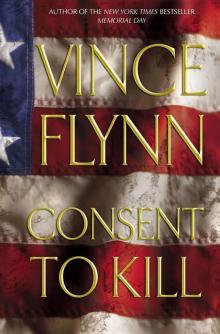 Consent to Kill
Consent to Kill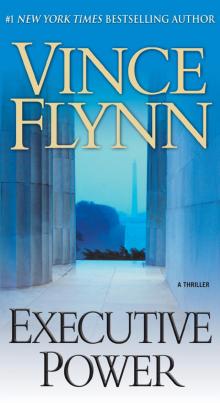 Executive Power
Executive Power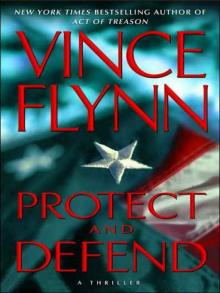 Protect and Defend
Protect and Defend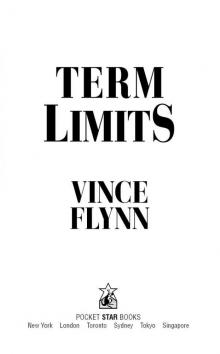 Term Limits
Term Limits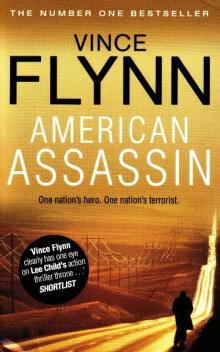 American Assassin
American Assassin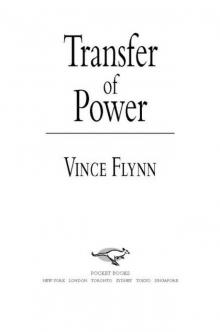 Transfer of Power
Transfer of Power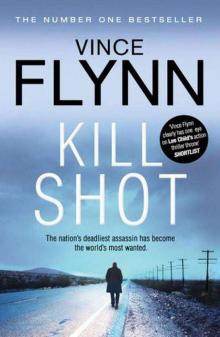 Kill Shot
Kill Shot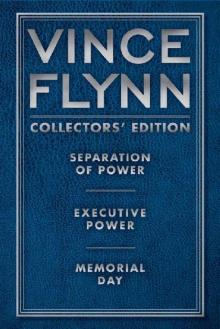 Vince Flynn Collectors' Edition 2
Vince Flynn Collectors' Edition 2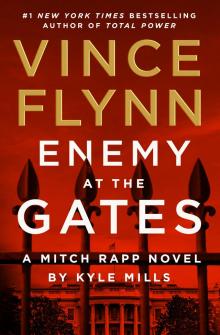 Enemy at the Gates
Enemy at the Gates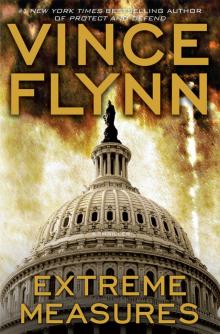 Extreme Measures
Extreme Measures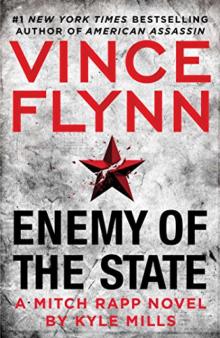 Enemy of the State
Enemy of the State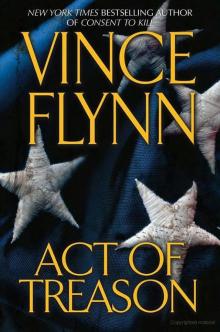 Act of Treason
Act of Treason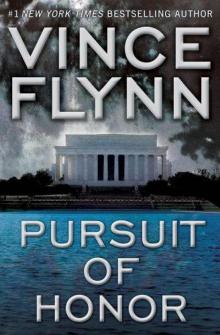 Pursuit of Honor
Pursuit of Honor The Survivor
The Survivor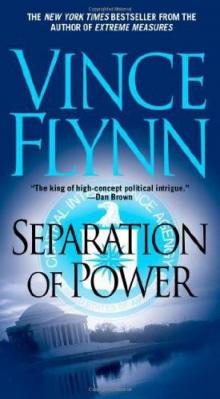 Separation of Power
Separation of Power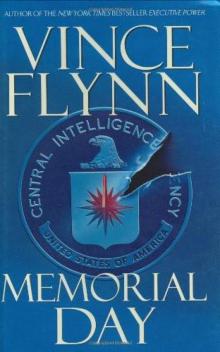 Memorial Day
Memorial Day The Last Man
The Last Man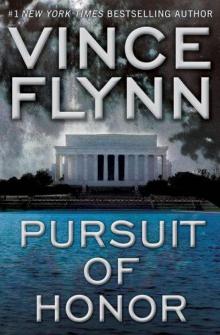 Pursuit of Honor_A Thriller
Pursuit of Honor_A Thriller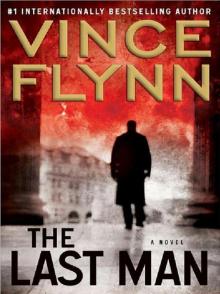 Mitch Rapp 13 - The Last Man
Mitch Rapp 13 - The Last Man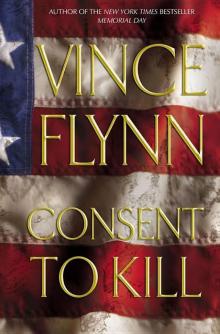 Consent to Kill:
Consent to Kill: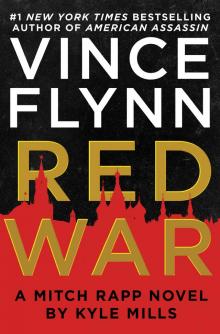 Red War
Red War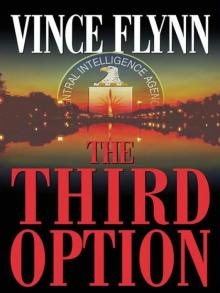 Mitch Rapp 02 - The Third Option
Mitch Rapp 02 - The Third Option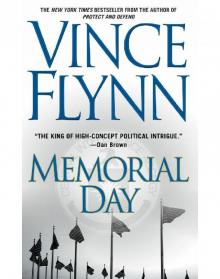 Mitch Rapp 05 - Memorial Day
Mitch Rapp 05 - Memorial Day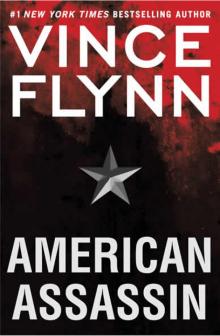 Mitch Rapp 11 - American Assassin
Mitch Rapp 11 - American Assassin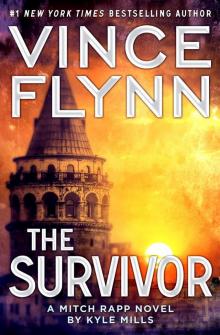 Mitch Rapp 14 - The Survivor
Mitch Rapp 14 - The Survivor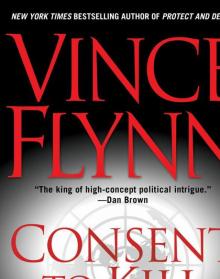 Mitch Rapp 06 - Consent to Kill
Mitch Rapp 06 - Consent to Kill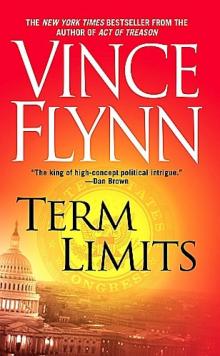 Term Limits mr-1
Term Limits mr-1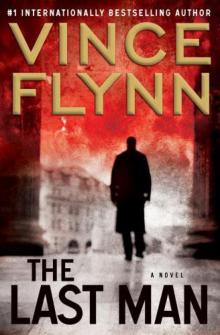 The Last Man mr-13
The Last Man mr-13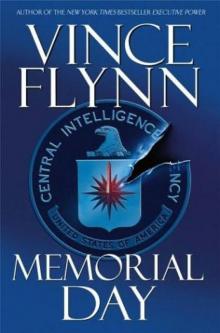 Memorial Day mr-5
Memorial Day mr-5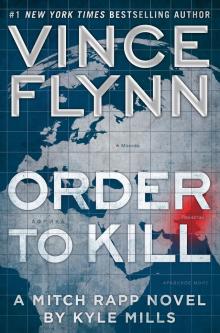 Order to Kill
Order to Kill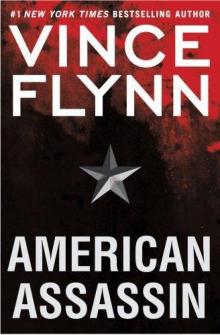 American Assassin: A Thriller
American Assassin: A Thriller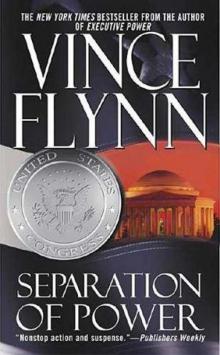 Separation of Power mr-3
Separation of Power mr-3